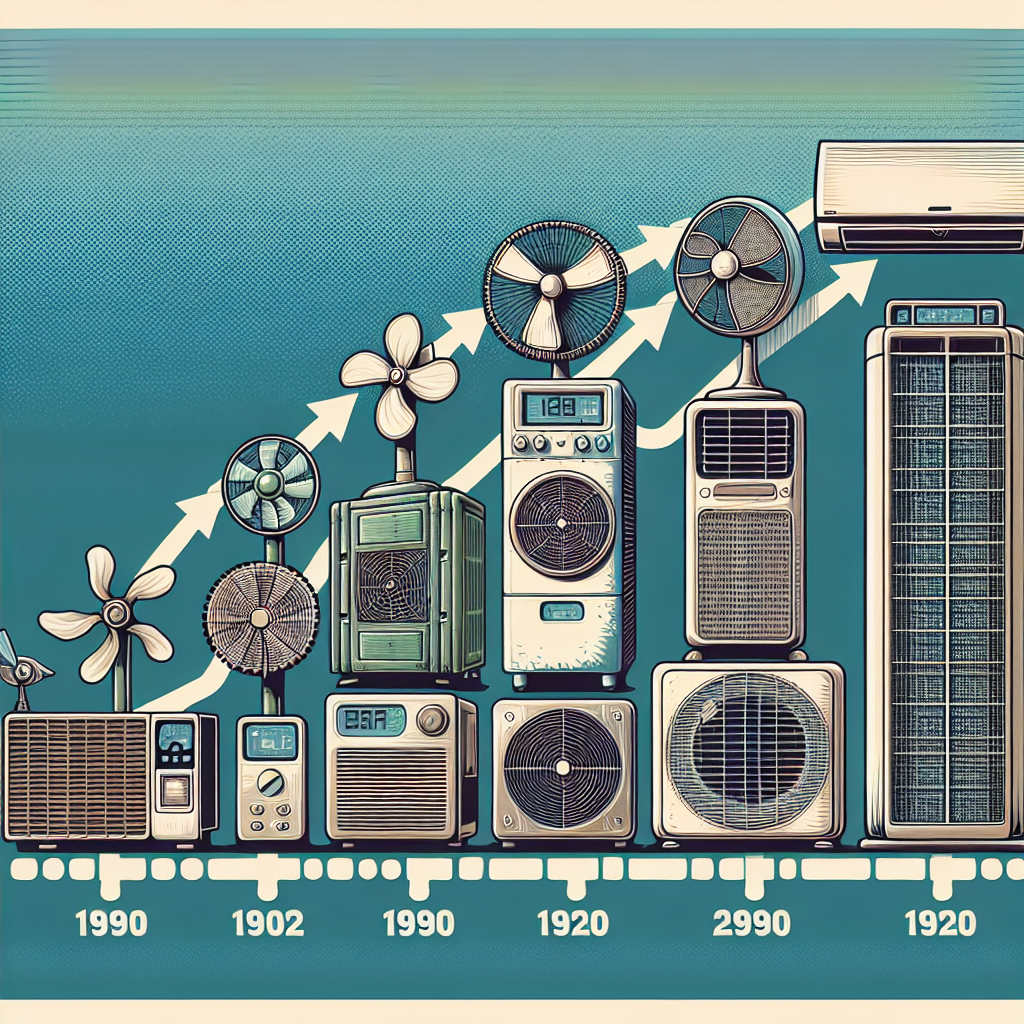Your cart is currently empty!
The Evolution of Air Conditioning Technology: What’s New and Exciting

Air conditioning technology has come a long way since its inception in the early 20th century. What started as a simple system to cool indoor spaces has evolved into a sophisticated and advanced technology that not only cools but also purifies and dehumidifies the air. With the increasing demand for energy-efficient and environmentally friendly solutions, manufacturers are constantly innovating and developing new air conditioning technologies that are more efficient, sustainable, and convenient.
One of the most exciting developments in air conditioning technology is the advent of smart and connected systems. These systems are equipped with sensors and smart thermostats that can be controlled remotely through smartphone apps or voice assistants like Alexa and Google Home. This allows users to adjust the temperature and settings of their air conditioning units from anywhere, ensuring maximum comfort and energy savings. Some smart systems also have learning capabilities, adapting to users’ preferences and schedules to optimize energy usage.
Another exciting development in air conditioning technology is the use of inverter technology in air conditioning units. Inverter technology allows the compressor to operate at variable speeds, adjusting the cooling output according to the temperature requirements of the room. This results in more precise temperature control, faster cooling, and energy savings of up to 30% compared to traditional air conditioning units. Inverter technology also reduces noise levels and extends the lifespan of the compressor, making it a more durable and reliable option for consumers.
Furthermore, advancements in refrigerants have led to the development of eco-friendly and energy-efficient air conditioning systems. R-410A and R-32 are some of the newer refrigerants that have replaced the ozone-depleting R-22 refrigerant. These new refrigerants have a lower global warming potential and are more efficient at cooling, reducing the carbon footprint of air conditioning systems. Manufacturers are also exploring natural refrigerants like propane and ammonia, which have zero ozone depletion potential and minimal impact on the environment.
In addition to smart technology and eco-friendly refrigerants, air conditioning systems are also becoming more energy-efficient through the use of advanced components and designs. Variable refrigerant flow (VRF) systems, for example, use multiple indoor units connected to one outdoor unit, allowing for individualized temperature control in different zones of a building. This results in energy savings and improved comfort for occupants. Heat pump technology is also being integrated into air conditioning systems, allowing them to provide both heating and cooling functions, further reducing energy consumption.
Overall, the evolution of air conditioning technology is focused on sustainability, efficiency, and comfort. With the rapid advancements in smart technology, eco-friendly refrigerants, and energy-efficient designs, consumers have more options than ever when it comes to choosing the right air conditioning system for their needs. As manufacturers continue to innovate and improve upon existing technologies, the future of air conditioning looks bright, promising even more exciting developments in the years to come.

Leave a Reply